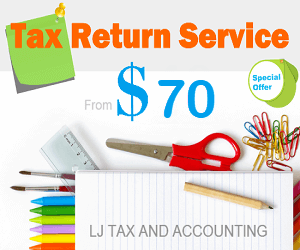
澳洲储备银行在最新的一份调查报告中试图寻找一个古老问题的答案:究竟是租房划算还是买房更划算?
澳央行的结论是,如果房产业主想要跟租客一样保持经济上的优势,那么房价就必须以超出过去六十年中的平均速度2.9%上涨。
“换言之,对未来资本增长的期望暗示着现在房价与历史正常水平持平。”储行说道。
储行说,这缓解了房市泡沫的担忧,因为投资者认为房价增幅还将保持过去六十年的水平。但如果房价增长放缓,租客将成为实际的赢家。
“如果房价增长慢于历史平均水平,正如一些预言家所预测的那样,那么典型的房产买家换做租房会更好。”
储行分析了拥有房产与租赁房产所涉及到的一系列成本,包括市府费、利率和购买价等。
储行表示,虽然类似的调查层出不穷,但他们的调查是独一无二的,因为该调查聚焦于澳洲房市,而且使用了更广泛的数据。
不过,储行也承认这份调查报告存在一些局限性,比如说聚焦于自住房,因为房产投资者可能会因为税务原因获得更多经济好处。
Reserve Bank paper states 2.9 per cent is the magic number for deciding whether to buy or rent
July 14, 20143:41PM
IS it better to buy or rent?
A new research paper by the most powerful force on mortgages, the RBA, reveals the magic number needed to answer this much-debated question.
“If potential home buyers expected house prices to rise faster than 2.9 per cent (a year), then buying would be more attractive than renting,” a paper published today by boffins from the Reserve Bank of Australia’s economic research and financial stability departments said.
Don’t have a strong or well-informed view on whether property will go up by more or less than 2.9 per cent?
The centralbank’s gurus Ryan Fox (a renter) and Peter Tulip (a homeowner) can help you out there too.
The authors said house prices have increased at an average annual rate of 2.4 per cent since1955.
“In April 2014,the cost of owning was the same as that of renting, 4.2 per cent of the value of the house. That is, houses are fairly valued,” they said.
So, “if real house prices grow at their historical average pace, then owning a home is about as expensive as renting”.
But if real estate price growth slows, “the average home buyer would be financially better off renting”.
And here’s their opinion on whether or not that will happen: “Many observers have suggested that future house price growth is likely to be somewhat less than this historic average. In that case, at current prices, rents, interest rates and so on, the average household is probably financially better off renting than buying.”
Since 1982,renters have actually paid more than home owners, they find.
“This result has surprised some home owners, who consider the non-financial benefits of ownership to be widely valued,” their paper, called Is Housing Overvalued?, said.
They also say that “recent data do not show signs of a bubble”.
“The expectations of future capital gains implied by current house prices are in line with historical norms. That allays some concerns about a housing ‘bubble’.”
Prices were overvalued in the early 2000s but then became undervalued in the second half ofthe decade before switching back to overvalued following the global financial crisis.
That said, “the average deviation from financial fundamentals has been small,” in Australia,unlike in America, where there have been big departures.

















